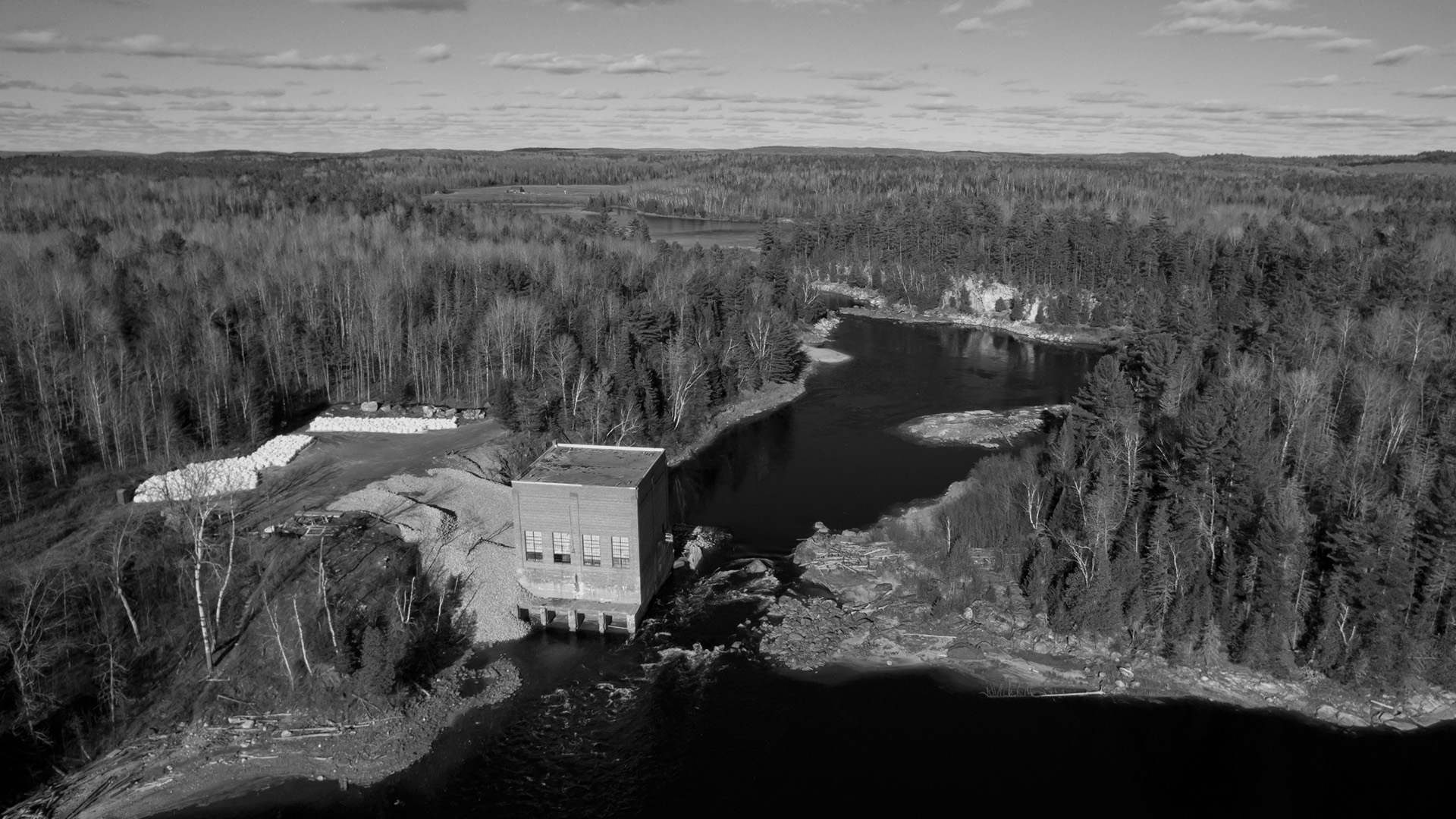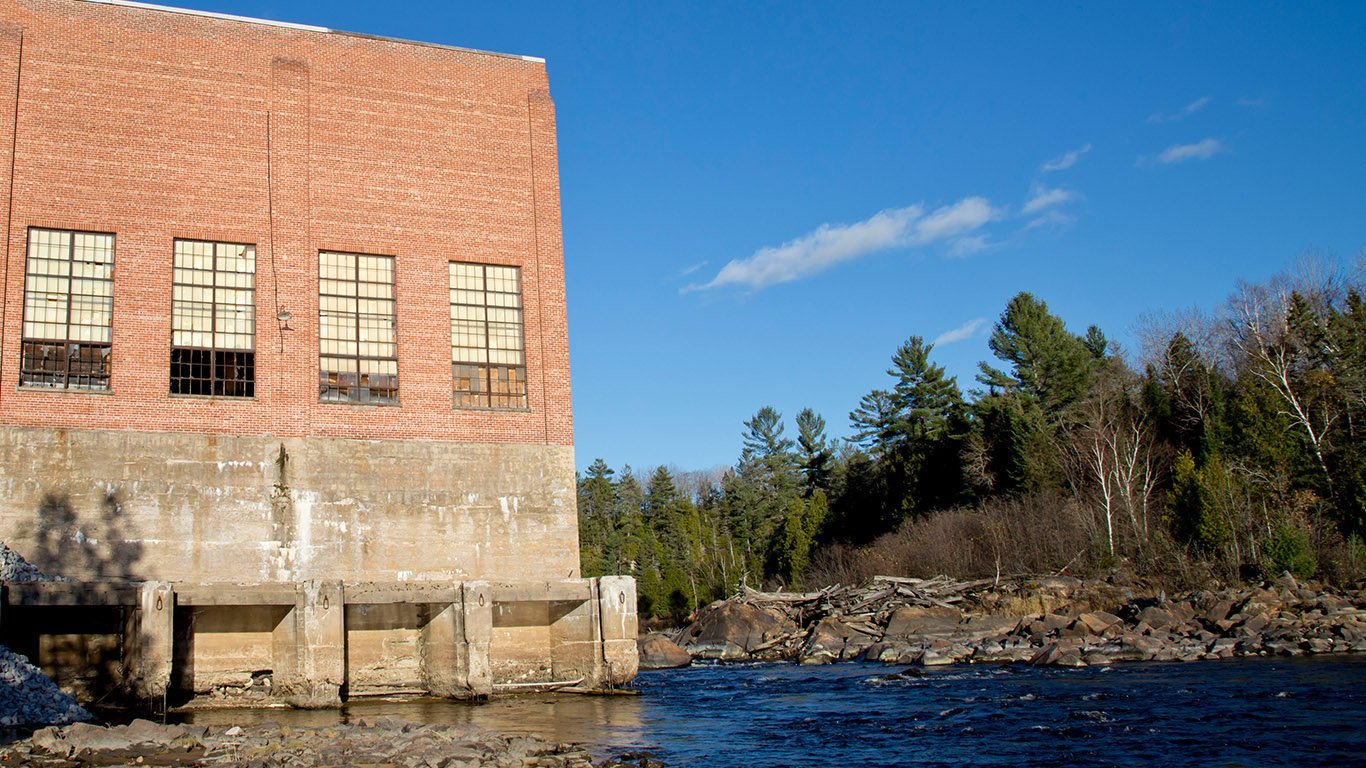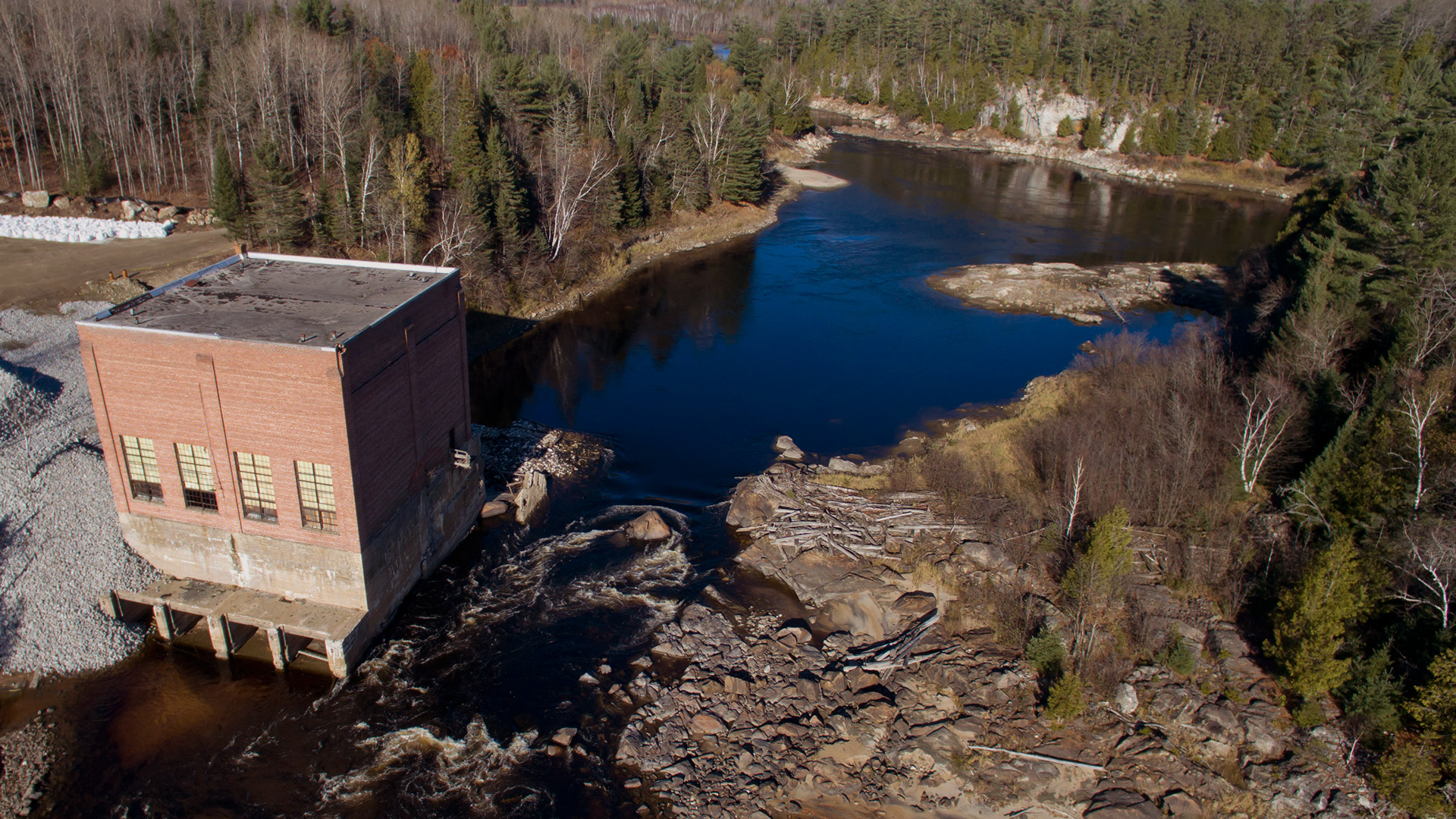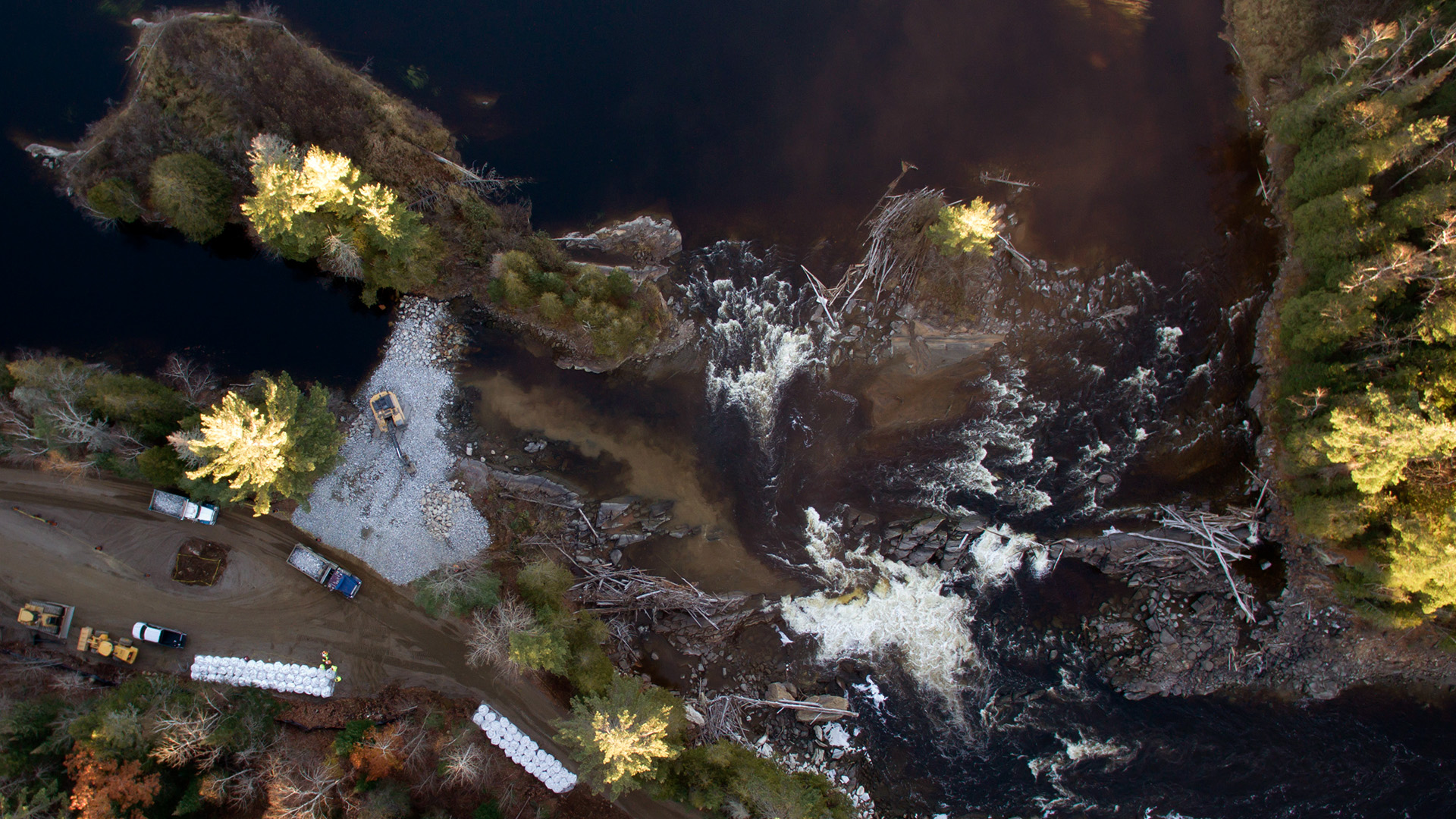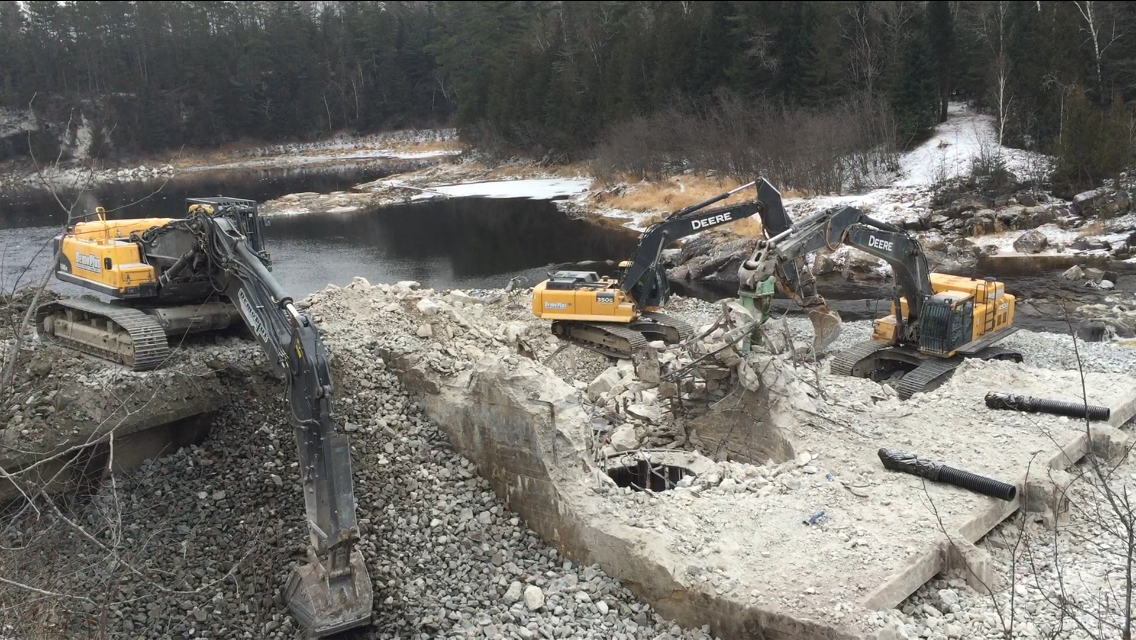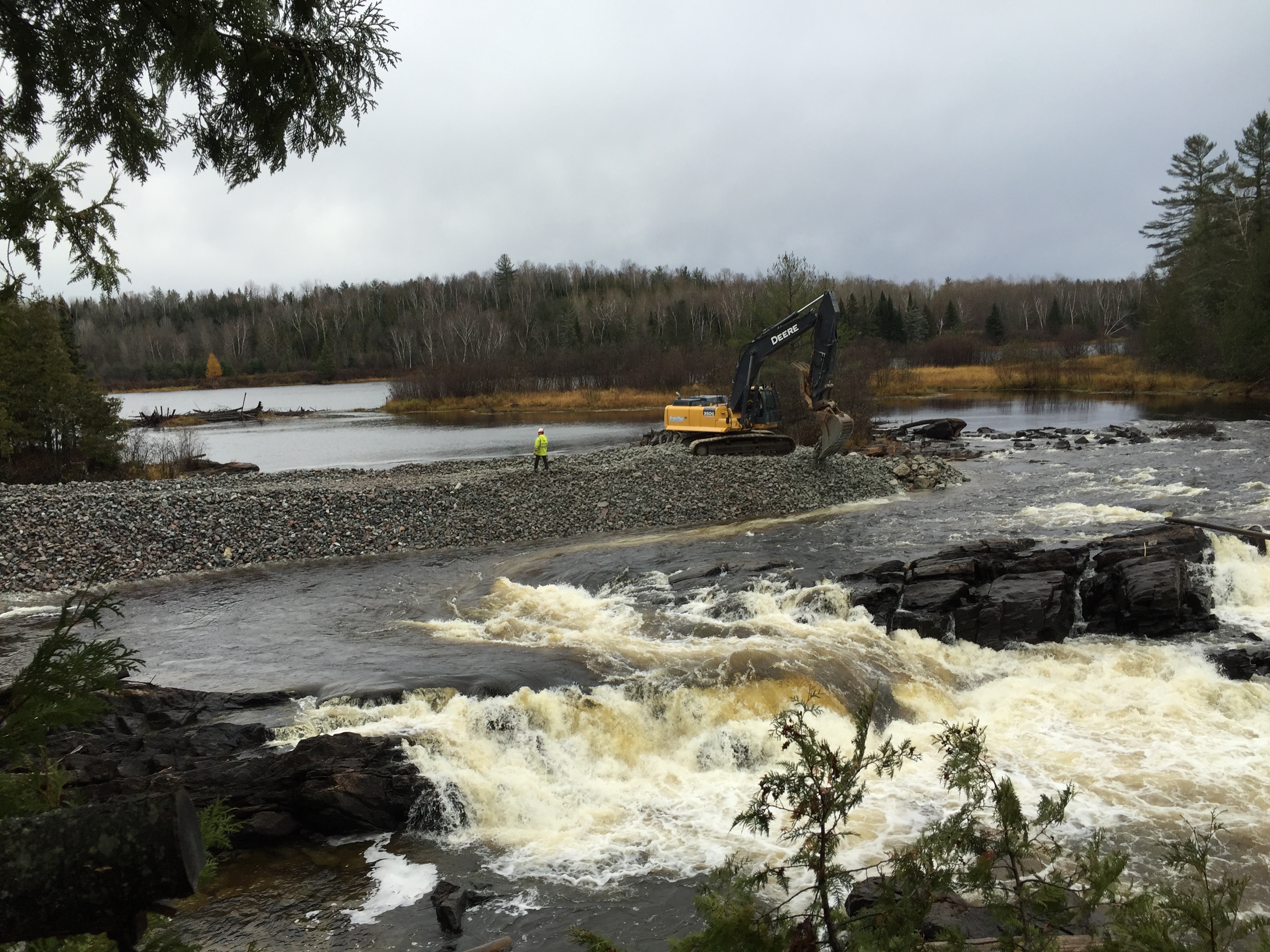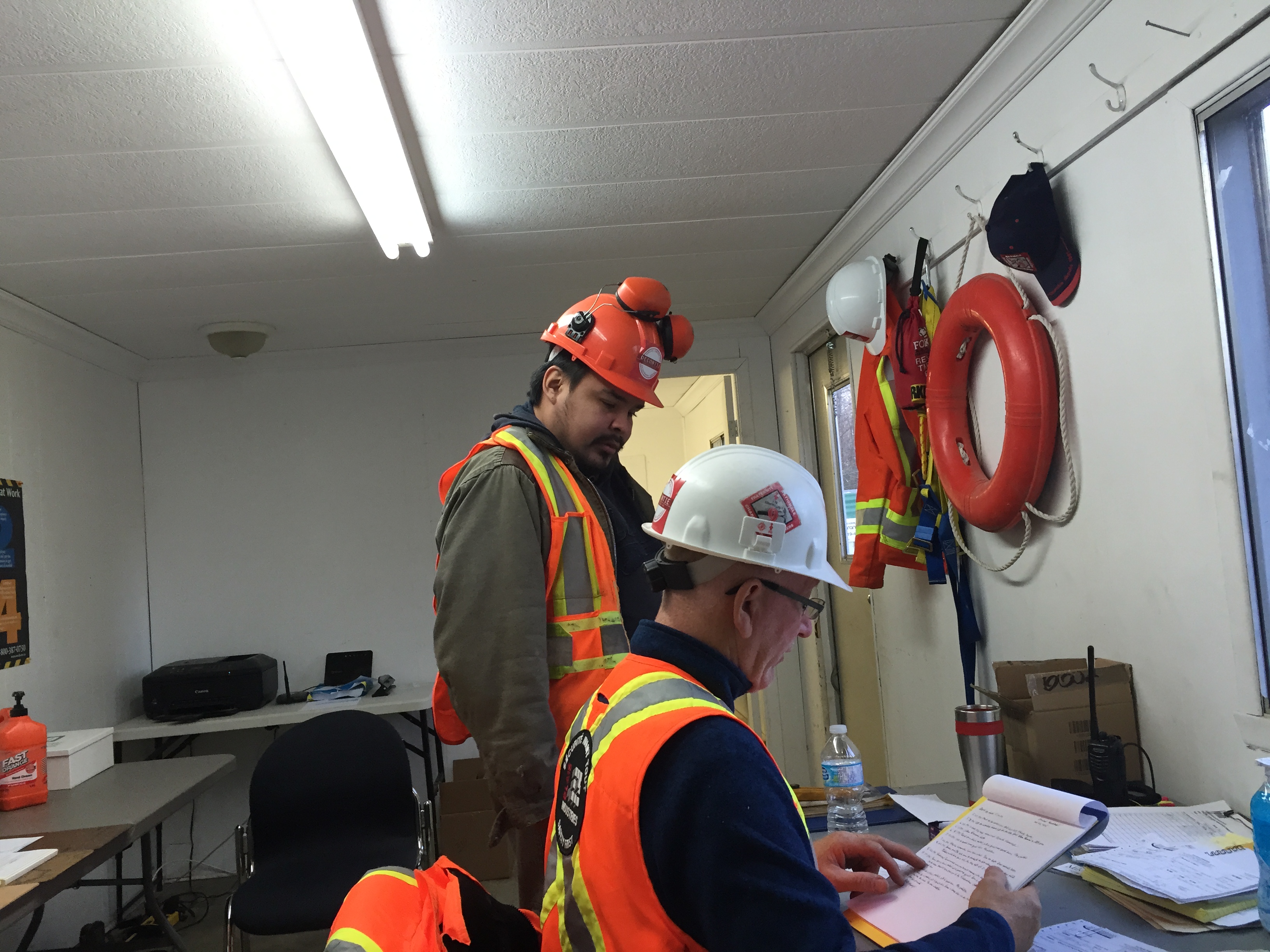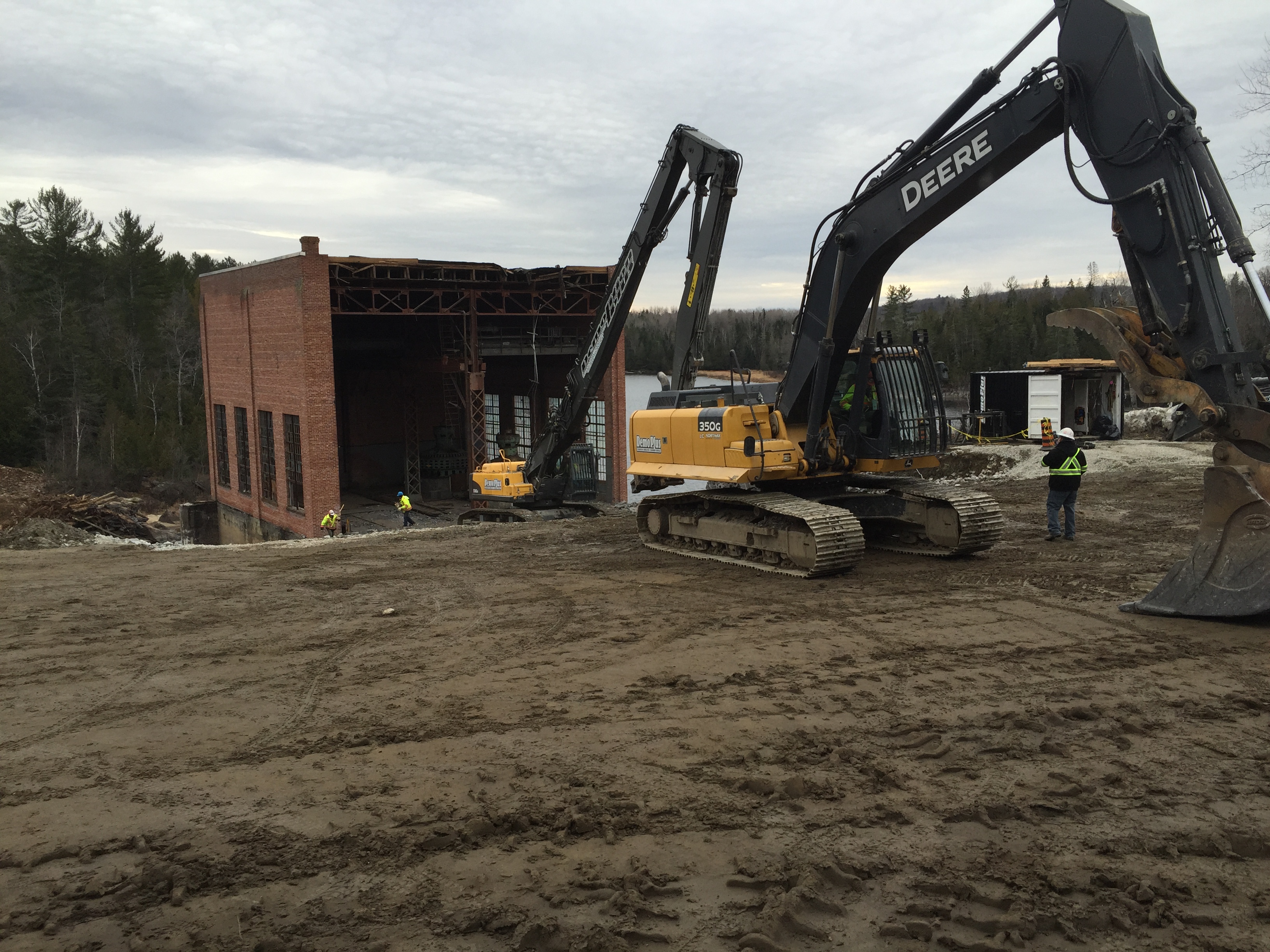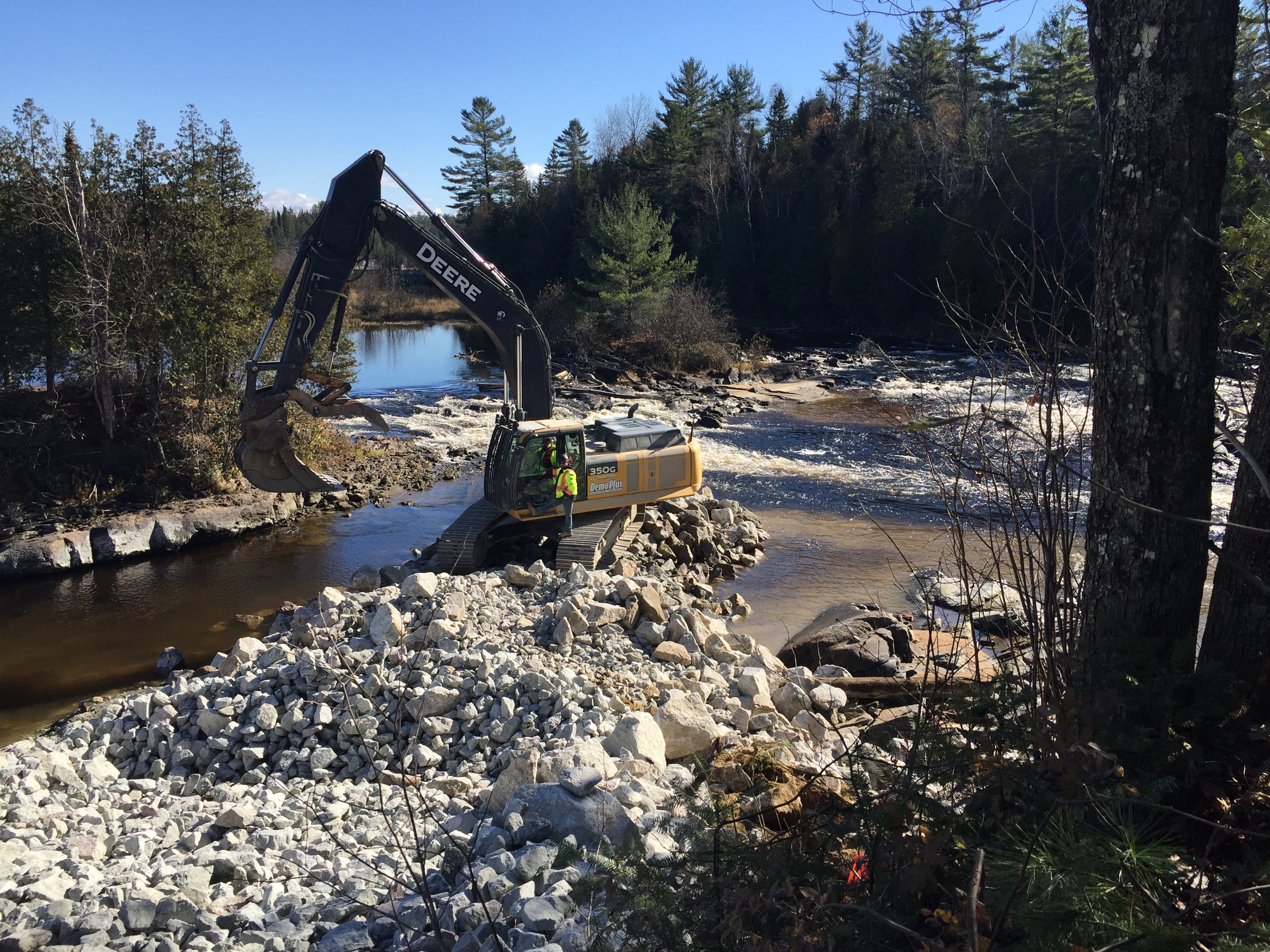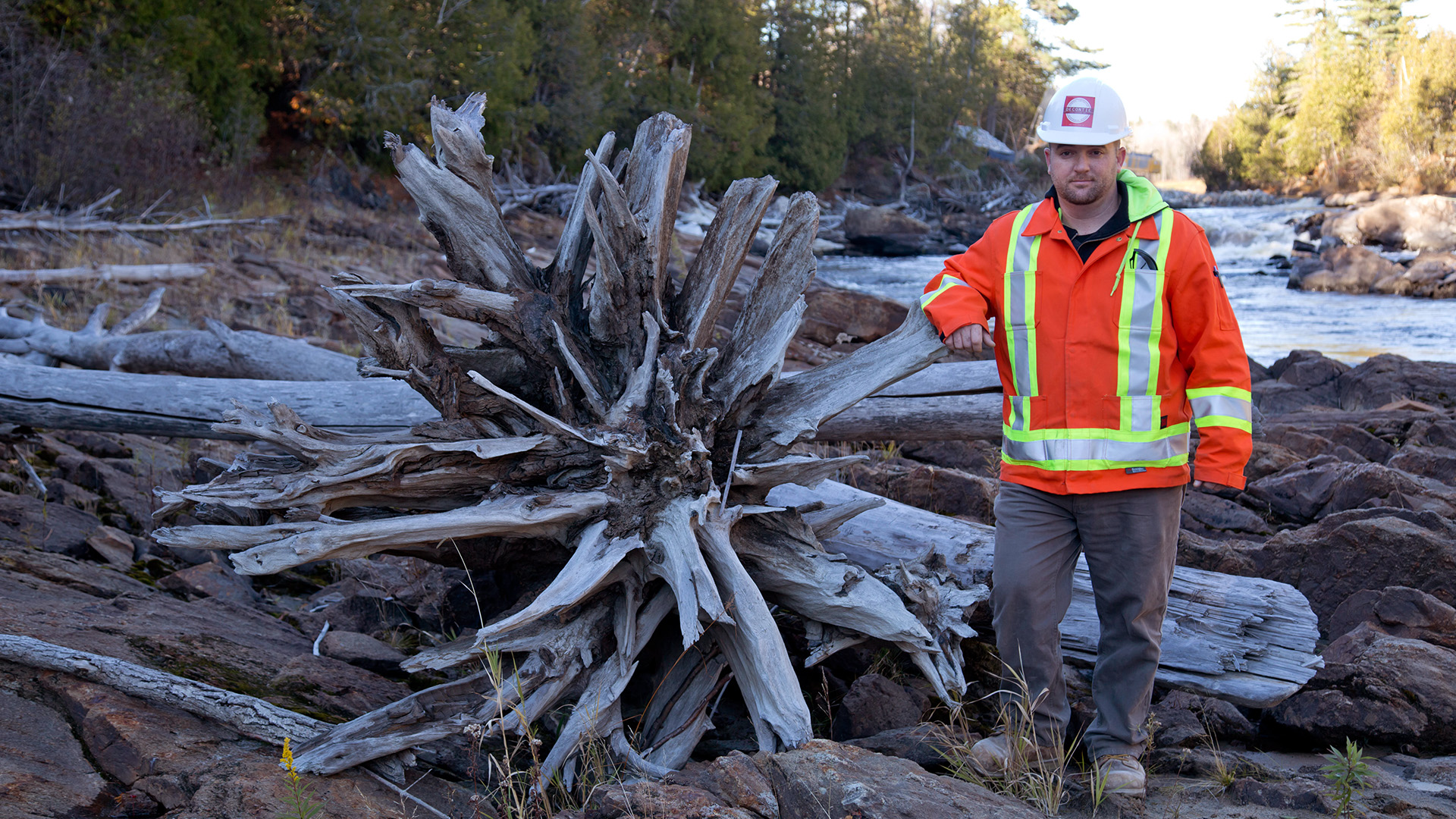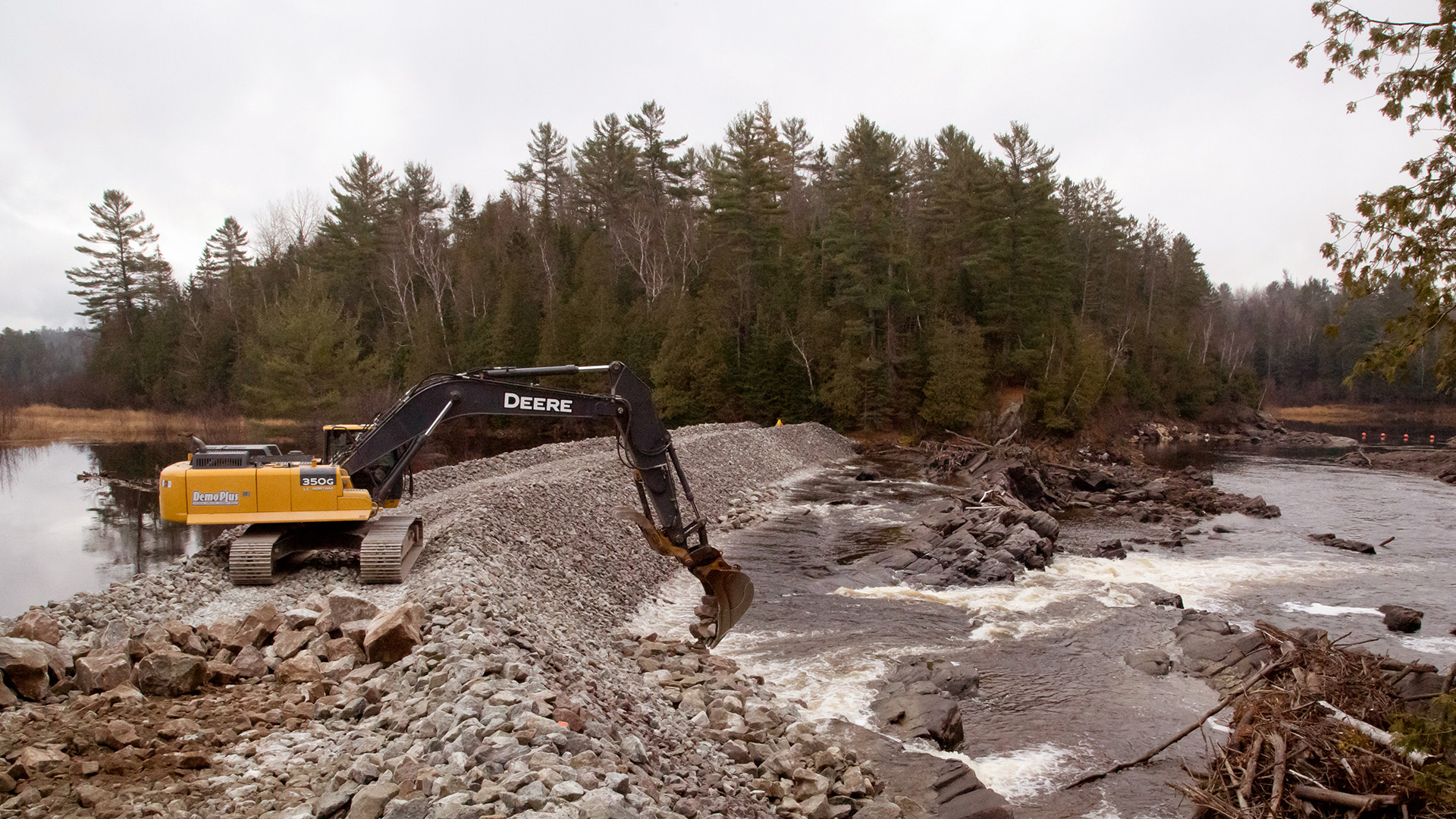Corbeau Hydroelectric Station
The Corbeau Hydroelectric Station was completed in December 2015 by Decontie Construction Inc.
Project objectives/ description:
Decontie Construction Inc. was awarded a contract to demolish a former run of the river Hydro Québec hydroelectric power station and return the site to its natural state. The Corbeau Station, situated on the Gatineau River just outside Maniwaki, Québec, was built in 1905 by a group a business people from Maniwaki, was in use until the early 1980’s.The Corbeau site was also at the edge of the Anishinabe (Algonquin) community of Kitigan Zibi and the only access road to the site crosses through Kitgan Zibi territory.
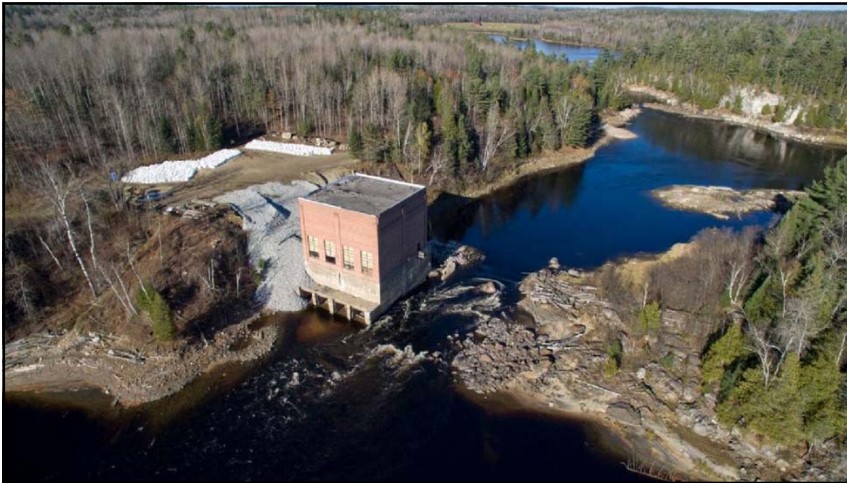
The Corbeau Hydroelectric Station decommissioning project saw Decontie lead a team of three contracting firms to dismantle an abandoned Hydro Québec generating station in a challenging environment. This project, a first outside reserve boundaries for Decontie, was valued at $4.5 million. Decontie retained the services of two non-First Nations companies to conduct specialty services such as environmental remediation of hazardous substances, civil engineering for the construction of cofferdams, and demolition of the building itself.
The team:
Decontie engaged the support of an experienced company to help guide and manage the project. Decontie was able to leverage Milestone Environmental Contracting Inc.’s experience as a general contractor and project manager to successfully respond to the Hydro Québec tender call. The two companies worked together seamlessly to execute and manage the project. The team also reached out to a trusted subcontractor, Demolition Plus, to apply their expertise relating to heavy civil earthworks and demolition services.
In accordance with the AMWD established for the project, the Corbeau project created and employed over 30 new jobs for Anishinabeg. The general contractor project team directly involved Anishinabeg labourers, heavy equipment operators, skilled tradesmen, administrators and site supervisory staff for the duration of the project. Specifically, Anishinabe workers were responsible for site access and security, road construction and maintenance, operation of heavy equipment, wood clearing and grubbing, shovel and timber jack operators, trucks and drivers, site foremen and supervisors. Services that involved the community of Kitigan Zibi that contributed to the overall success of the project included police surveillance, food catering, printing and communication products, local CKWE radio station, and KZA public works.
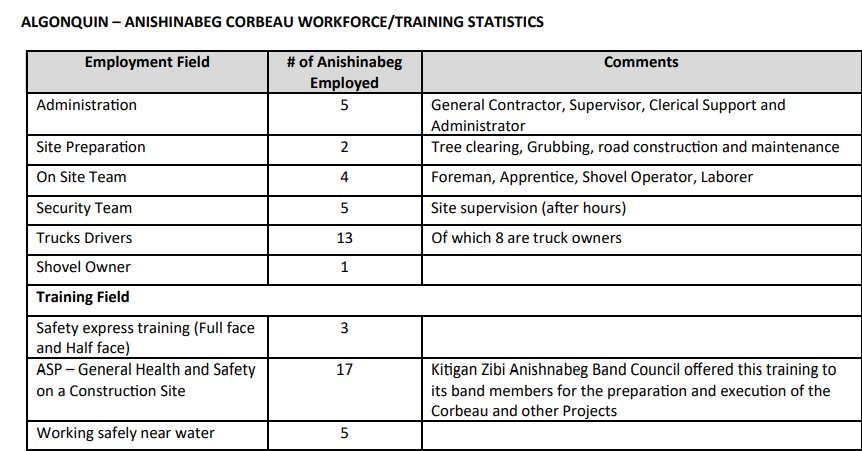
Project outcomes:
The Corbeau project proved to be a tremendous success for all parties involved. The success of the project is a true testament to the collaborative approach embraced by all stakeholders, right from Hydro Québec, KZA, CCQ, local labour and construction workforce, and specialized subcontractors that were working towards one common goal. In addition to the project objectives being realized, the Corbeau decommissioning also created numerous positive outcomes for the local community and workforce. As mentioned above, over 30 Anishinabeg workers were involved at all levels of the project, and gained valuable transferable skills and meaningful employment experience that will support future employment opportunities both locally and beyond the borders of Kitigan Zibi.
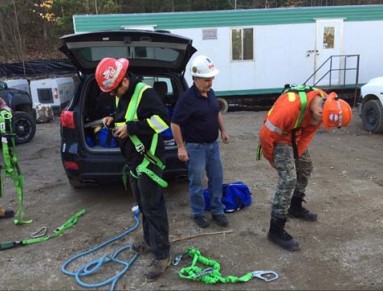
In terms of measuring the success of the project the following key metrics demonstrate the significance of the positive outcomes generated by the project:
- In-water works (removal of upstream/downstream cofferdams and construcƟon of fish spawning beds) completed 12 days ahead of mandated contract deadline;
- Site restoration, slope stabilization and seeding completed in December 2015, a full 5 to 6 months ahead of anticipated construction schedule;
- A total of 30 Anishinabeg workers employed on the project;
- Specialized construction sector training was provided;
- A KZ shovel operator was apprenticed by a KZ shovel operator journeyman;
- A total of 812 hours of independent KZ truckers (dump trucks) were hired by the project
- A total of 1,496 truckloads (~ 25,500 metric tons) of material (sand, gravel, 50-150 mm and 400 mm + cofferdam rock)
- was hauled onto the site by KZ truckers;
- A total of 1,930 truckloads (~28,000 metric tons) of material (cofferdam rock, crushed concrete, rubble etc.) was hauled off-site by KZ truckers;
- A total of 1,558 truckloads of clean fill material was accepted by a neighbouring landowner for beneficial reuse to improve grading and access on their property.
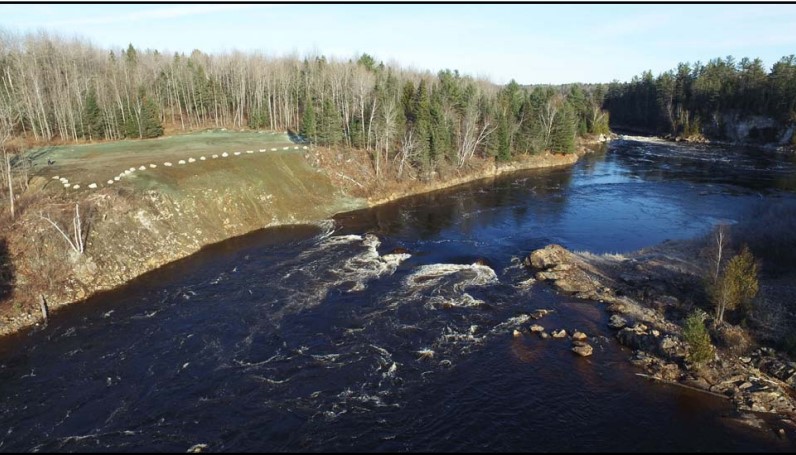
With the support of the KZA, Decontie and his Contracting Team, was proud to act as the Algonquin general contractor for this challenging and high-profile project. This project and the establishment of AMWD provided a great opportunity to further the development of a workforce of First Nations trades workers and for some, gave them the on-the-job training opportunities they need to complete their certifications.
Overall, the outcomes of the project were achieved, the community has gained and benefited from social, economic and environmental impacts from the project, and the construction industry has acquired trained and certified workers in their workforce.
Decontie is grateful that Hydro Québec believed firmly in the importance of consulting and retaining a contractor from the Algonquin Nation. This project gave Anishinabeg workers the opportunity to practice their trades and complete their on-the-job training requirements. Decontie will use this project as a spring board to further recruit, hire and train an Algonquin-Anishinabeg construction workforce for their integration in the construction industry.
We believe passionately in the importance of giving back to communities, and we wish to work with partners such as KZA, INAC, Hydro Québec, CCQ, that share our beliefs, particularly as they pertain to advancing the interests of Canada’s First Nations people in the construction industry.
